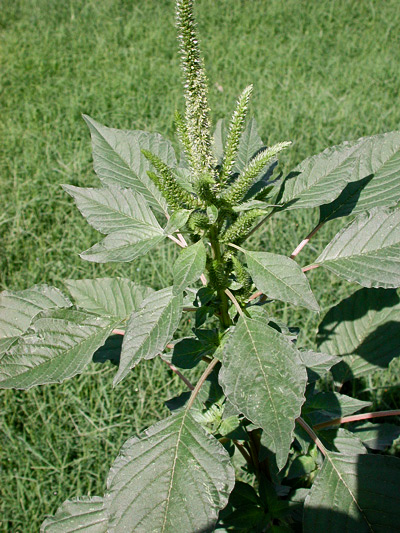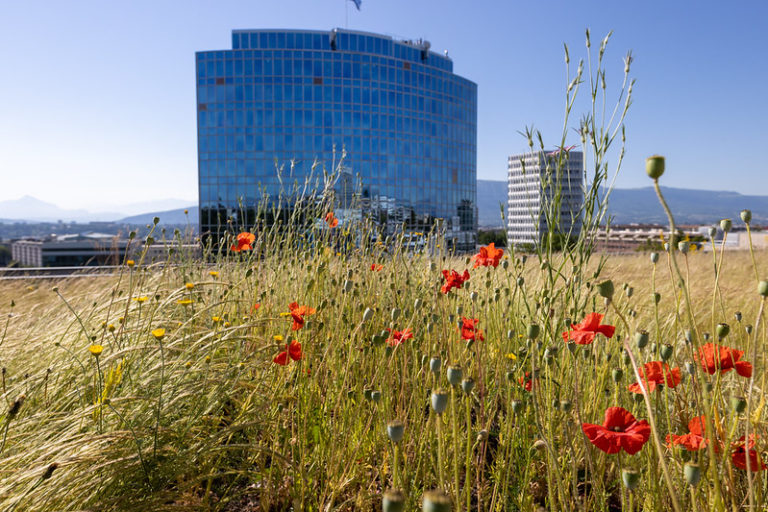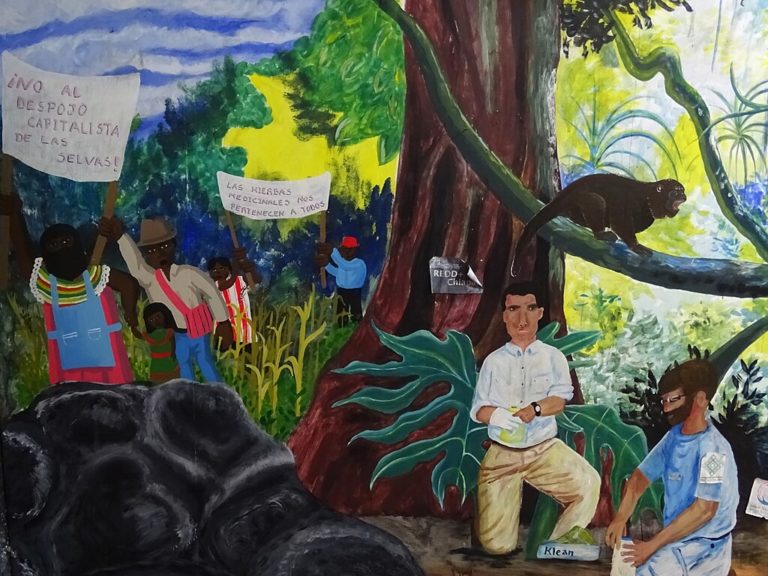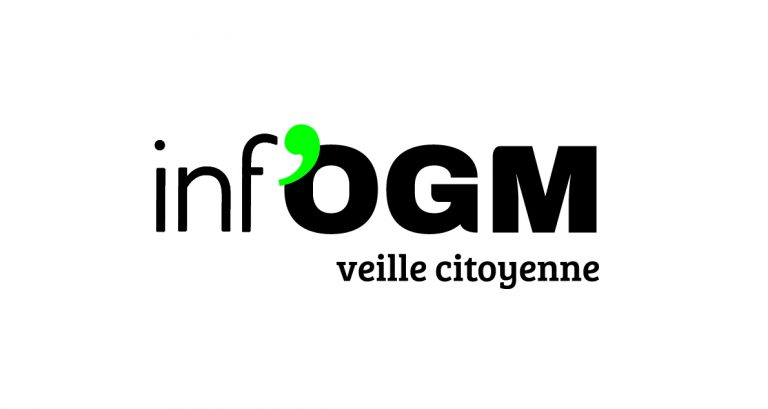Actualités
New GMO – Upsetting decisions for the industry

A minority of the world’s economically powerful states have decided to relax the rules for GMOs produced by new genetic modification techniques. Others have explicitly decided that these GMOs must be subject to GMO regulation. This is the case of New Zealand and South Africa. However, the decisions taken by these two countries are facing pressure from the agribusiness.
In South Africa and New Zealand, GMOs derived from new genetic modification techniques fall under the GMO regulation and must therefore be subject to the same obligations as any other GMO. In the European Union, the Court of Justice made the same finding. As a result and under pressure from the agro-industry, the European Commission initiated a process to revise the legislation.
New Zealand : upholding the caution approach
In New Zealand, the decision to subject GMOs derived from new genetic modification techniques to the GMO legislation resulted from a 2014 Wellington High Court ruling [1]. This was the first time in the world that a court had ruled on the legal classification of these new techniques. In the case before the Court, two modification techniques were specifically concerned (zinc finger nuclease (ZFN-1) and TALEN). The Environmental Protection Agency had decided a year earlier that these techniques did not produce GMOs [2]]. In the Agency’s view, these techniques do not involve the insertion of foreign genetic material and are therefore similar to chemical mutagenesis, one of the techniques exempted from New Zealand’s GMO regulations.
The High Court disagrees with this interpretation and therefore overturned the Agency’s decision. It rules that the list of techniques exempted from the GMO regulation is a closed list. Since ZFN-1 and TALEN are not mentioned in the list, they cannot be exempted. It is interesting to note that these two techniques are not included under the term mutagenesis. Instead, they are considered as non-exempt techniques in their own right, even though they are associated with mutagenesis and a whole range of other non-GMO regulated techniques.
The High Court ruling led the New Zealand government to revise the regulations in a manner reminiscent of the ruling a few years later, by the Court of Justice of the European Union. The new rules provide that mutagenesis techniques used before 1998 (when the New Zealand regulations were adopted) produce organisms that are not subject to regulation, whereas those developed subsequently produce GMOs that are subject to regulation [3]. All subsequently developed mutagenesis techniques, including new genetic modification techniques, regardless of their combination with originally excluded techniques, are therefore regulated as GMOs.
The New Zealand government’s position is consistent with its precautionary approach to GMOs in general. Although the country allows the import of GMOs for food and feed use, no commercial cultivation of GMOs is permitted. The country thus enjoys a “GMO-free” image. With regard to GMOs resulting from new techniques of genetic modification, the government explains its cautious approach by the fact that the country is a billion dollar exporter of food products and must therefore be attentive to market insights as well as scientific data [4].
South Africa: a surprising decision
In the case of South Africa, on the other hand, the decision to subject GMOs derived from new genetic modification techniques to GMO regulation was not obvious at all. The country is one of the world’s top ten GMO producers. The area of GM maize, soybean and cotton production is estimated around 2.8 million hectares. More than 80% of the maize crops, about 95% of the soybean crops and 100% of the cotton crops are GM [5].
However, in October 2021, the South African Department of Agriculture explains that “(t)he GMO Act defines a Genetically Modified Act (GMO) as an organism the genes or genetic material of which has been modified in a way that does not occur naturally through mating or natural recombination or both.” (note the similarity with the European definition…). It concludes that the risk assessment framework that exists for GMOs should also apply to GMOs resulting from new genetic modification techniques [6].
The New Zealand and South African decisions are in line with the conclusions of the Court of Justice of the European Union in 2018 [7], followed by the French « Conseil d’Etat » in 2020 [8]. However, they go against the grain of the regulations adopted by a growing number of states, albeit a minority, which are reducing the constraints on these new techniques and the products derived from them [9] [10] [11] [12]. These deregulations are the legal translation of the agro-industry’s claim that the new techniques are more precise and therefore make it possible to obtain safer products. And since these techniques would consist of doing what nature does, but faster, there would be no scientific basis for making a legal distinction between the products that result from them and the so-called conventional products.
It is therefore hardly surprising that the decisions of the New Zealand and South African governments do not please the industry that promotes these new techniques…
Judicial attack in South Africa
In South Africa, the industry is putting legal pressure on the government with an appeal to the Minister of Agriculture. The appeal was lodged by The Agricultural Business Chamber of South Africa (whose members include Corteva, Bayer, Syngenta, BASF, etc. [13]), the seed industry association Sansor (whose members include Bayer, BASF, Rijk Zwaan, etc. [14]) and CropLife SA [15]. They warn of the negative consequences of the decision « to regulate all products derived from NBTs (new breeding techniques) as GMOs ». The industry puts forward economic arguments (innovation, international trade, costs to access the South African market, etc.) but above all environmental arguments. In a context of climate change, “science-based regulation for products derived from NBTs” would be an imperative to guarantee food security, cope with pest pressure, etc. [16]. As if there were only one science, which obviously does not include scientific studies on the risks of new genetic modification techniques…
An appeal board is due to rule on the industry’s appeal in the coming months. Civil society organisations, including the African Centre for Biodiversity [17], believe it is very likely that if the appeal board doesn’t go in favour of the industry, it will take the case to the High Court.
Media attack in New Zealand
An important event in the challenge to the New Zealand government’s decision is the publication in 2021 of the report of the Productivity Commission, an independent administrative body made up of economists. This report, criticised for its lack of balance by the organisation GE Free New Zealand, advocates a review of the GMO regulation « to ensure it is fit for purpose and supports domestic innovation » [18] .
In March 2022, in response to this report, the New Zealand government states that it has « long considered that the New Zealand brand and value is best met by maintaining a ‘proceed with caution’ approach […] (but that it is) timely to start informed conversations around New Zealand’s use of GM technologies » [19].
This response triggered a series of reports in several media across the country, putting the 2021 report back on the front page and headlining the need for new genetic modification techniques to “save the planet”, in the context of climate change, etc. [20]. This is a way of skewing the debate on the regulation of new genetic modification techniques in favour of the recommendations of the Productivity Commission report… Moreover, when it is not presented as “recent”, the report is described as “revolutionary”. This lack of objectivity goes even further, since several media published a press release from the BiotechNZ company [21] on the same day, in extenso, which wants to see the GMO regulations reviewed, and the majority of them give a lot of space to the words of the company’s director. Very few of them are critical, such as that of GE Free New Zealand. The Productivity Commission’s report repeats the same mantra used 25 years ago for the deregulation of transgenic GMOs, a technology that has failed, the organisation points out. GE Free New Zealand insists: “New Zealand cannot afford industry to avoid necessary precaution and regulation […] (and) (t)here is also value in Brand New Zealand being recognised by international consumers for safe, natural food, high standards of animal welfare and meeting the global demand for Non-GMO Food.” [22].
For the time being, however, a review of the regulations is not on the agenda. The Environment Minister, David Parker, has indeed stated that the forthcoming discussion will be limited to GM medicines, as he believes that there is still mistrust in GM foods [23].
[1] « High Court of New Zealand, Sustainability Council of New Zealand Trust v. The Environmental Protection Authority », 20 May 2014. https://forms.justice.govt.nz/search/Documents/pdf/jdo/76/alfresco/service/api/node/content/workspace/SpacesStore/1594ff52-8c2c-4bf5-8f15-29dbcecc6fa9/1594ff52-8c2c-4bf5-8f15-29dbcecc6fa9.pdf
[2] « Environmental Protection Authority, Decision », 19 April 2013. https://www.epa.govt.nz/assets/FileAPI/hsno-ar/APP201381/03e845f138/APP201381-APP201381-Decision.pdf
[3] The regulations state that « (f)or the purposes of the Act, the following organisms are not to be regarded as genetically modified: […] organisms that result from mutagenesis that uses chemical or radiation treatments that were in use on or before 29 July 1998 », « Hazardous Substances and New Organisms (Organisms Not Genetically Modified) Regulations 1998 », https://www.legislation.govt.nz/regulation/public/1998/0219/latest/whole.html
[6] « Republic of South Africa, Public Notice – South Africa’s regulatory approach for new breeding techniques », 27 October 2021, https://www.dalrrd.gov.za/doc/Notice%20SA’s%20regulatory%20approach%20for%20NBT’s%202021.pdf. It should be noted that the South African GMO legislation does not contain the equivalent of recital 17 of the EU Directive 2001/18 on the deliberate release of GMOs into the environment. According to this recital, the « (d)irective should not apply to organisms obtained through certain techniques of genetic modification which have conventionally been used in a number of applications and have a long safety record »
[13] Agbiz, Members, https://agbiz.co.za/content/about-us?page=members
[14] Sansor, Our members. https://www.sansor.org/members/
[15] CropLife SA’s executive board includes representatives from Syngenta, Bayer and Corteva. Its members include BASF SA, Bayer CropScience, Corteva AgriScience, Syngenta South Africa, etc.
[16] CropLife, « Joint news release issued by Agbiz, Sansor and CropLife SA on the industry appeal lodged against South Africa’s regulatory approach to classify and regulate all new breeding techniques (NBTs) under the genetically modified organisms act 15 of 1997 », 13 January 2022.https://croplife.co.za/nbtrelease/
[18] « New Zealand Productivity Commission, New Zealand firms : Reaching for the frontier », April 2021. https://www.productivity.govt.nz/inquiries/frontier-firms/
[19] « New Zealand Government, Government response to the Productivity Commission’s Frontier Firms inquiry », March 2022. https://www.productivity.govt.nz/assets/Inquiries/frontier-firms/Government-response_Frontier-firms.pdf
[20] Stuff, « Can GM save the planet ? Some farmers think it’s worth a go », 18 April 2022. https://www.stuff.co.nz/business/farming/128351860/can-gm-save-the-planet-some-farmers-think-its-worth-a-go,
F&B Technology, « New Zealand needs genetic modification », April 2022. https://www.fbtech.co.nz/2022/04/26/new-zealand-needs-genetic-modification/
Business Desk, « We need to talk about GMO », 29 April 2022. https://businessdesk.co.nz/article/opinion/we-need-to-talk-about-gmo
Scoop, « NZ needs genetic modification in the world of climate change », 26 April 2022. https://www.scoop.co.nz/stories/BU2204/S00546/nz-needs-genetic-modification-in-the-world-of-climate-change.htm
Today, « Are genetically modified products part of the solution to climate change ? », 1 May 2022. https://www.todayfm.co.nz/home/rural/2022/04/are-genetically-modified-products-part-of-the-solution-to-climate-change.html
1News, « Genetic modification review being called for, reigniting debate », 16 April 2022. https://www.1news.co.nz/2022/04/16/genetic-modification-review-being-called-for-reigniting-debate/
RNZ, « Call for review of genetically modified tech regulation in NZ », 11 April 2022. https://www.rnz.co.nz/news/business/465051/call-for-review-of-genetically-modified-tech-regulation-in-nz
Business Desk, « Timely to reopen GMO debate »,12 April 2022. https://businessdesk.co.nz/article/primary-sector/timely-to-reopen-gmo-debate
Rural Newsgroup, « Feds : Overdue GM discussion offers GHG solution », 13 April 2022. https://ruralnewsgroup.co.nz/rural-news/rural-general-news/feds-overdue-gm-discussion-offers-ghg-solution?print=1&tmpl=component
95bFM, « Calls for Regulatory Overhaul of Genetically Modified Organisms w/Ganesh Nana », 12 April 2022. https://95bfm.com/bcast/calls-for-regulatory-overhaul-of-genetically-modified-organisms-w-ganesh-nana
NZTech, « NZ needs genetic modification », 26 April 2022. https://nztech.org.nz/2022/04/26/nz-needs-genetic-modification-in-the-world-of-climate-change/
Foreign Affairs, « NZ needs genetic modification in the world of climate change », 26 April 2022. https://foreignaffairs.co.nz/2022/04/26/mil-osi-new-zealand-nz-needs-genetic-modification-in-the-world-of-climate-change/
[21] BiotechNZ, « NZ needs genetic modification in the world of climate change », https://biotechnz.org.nz/2022/04/26/nz-needs-genetic-modification-in-the-world-of-climate-change/26 avril 2022.
[22] GE Free New Zealand, « Productivity Commission’s Report Advances GE Deregulation Threatening Safe Food Reputation and Ignores Animal Cruelty », 20 April 2022. https://press.gefree.org.nz/press/20220420.htm
[23] 1News, « Genetic modification review being called for, reigniting debate », 16 April 2022. https://www.1news.co.nz/2022/04/16/genetic-modification-review-being-called-for-reigniting-debate/















